A severely wounded seal with a plastic frisbee ring stuck around its neck has been rescued and named Sir David, in the third case of its type off the Norfolk coast in less than two years.
The adult male grey seal was found by volunteers on the beach at Horsey on Wednesday and taken to an RSPCA centre at East Winch, near King’s Lynn.
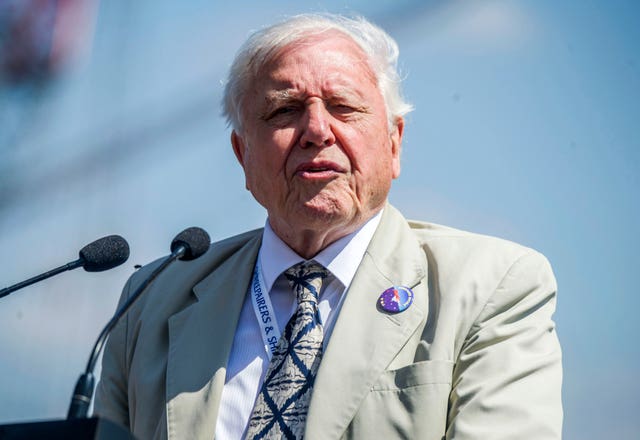
Staff there named him Sir David, after Sir David Attenborough, whose Blue Planet II series raised awareness of the environmental damage caused by plastic pollution.
A first seal, Mrs Frisbee, was rescued in 2017 and released the following year, and a second, called Pinkafo, is still recovering at the centre after she was rescued in December.
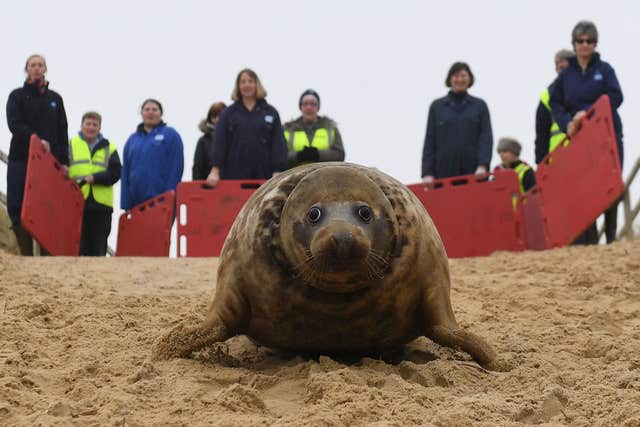
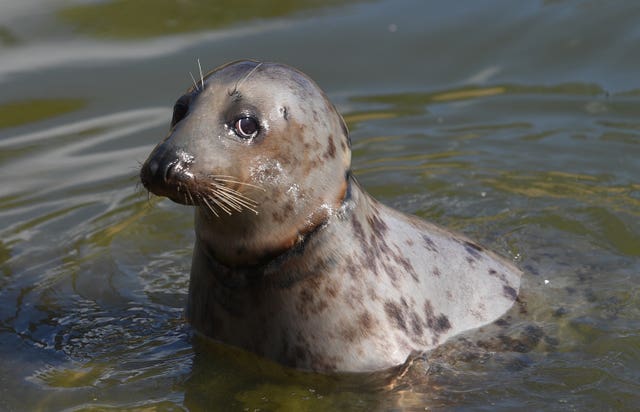
There had been multiple sightings of seal Sir David but he could not be caught until he weakened.
Volunteer rescuers from Friends of Horsey Seals and Marine and Wildlife Rescue used a net to catch him. He weighs 125kg (19st 9lb).
We’ve finally managed to catch another of the necklaced seals today. The frisbee has been cut off and she is receiving the care she needs at RSPCA East Winch. We continue to monitor and try and catch the other seals that have been reported with netting, rope or frisbees.
— FriendsofHorseySeals (@HorseySeals) April 3, 2019
Alison Charles, manager of the RSPCA centre, said: “He’s in a right state, he’s really quite poorly.
“He should be a lot bigger than he is. He’s not emaciated but he should be a lot bigger and heavier because he’s a big old boy.
“It’s obviously been on for some time cutting into his neck, it’s caused a huge, deep, extensive wound that’s really infected.”
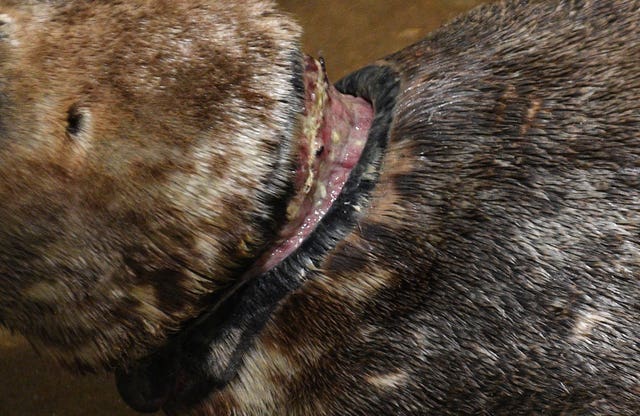
The frisbee was cut off by a vet using surgical scissors and Sir David has been given antibiotics and painkillers.
“We didn’t see any of these type of injuries (from plastic pollution) until 2008 and we’ve been here since 1988,” said Ms Charles.
There has been a “gradual increase” since the first case which involved a nylon fishing line, she added.
Initially it was three or four cases per year until last year when there were 12 at the centre.
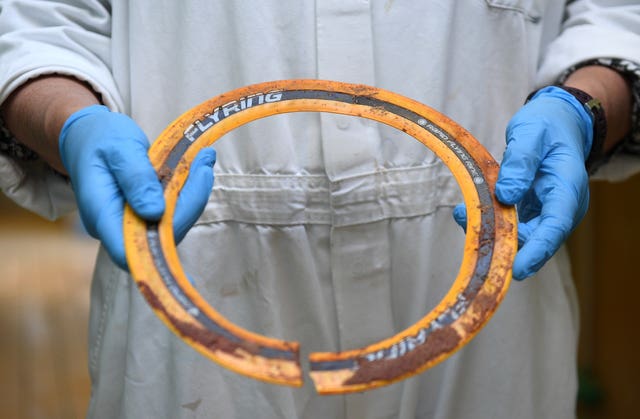
The RSPCA said the number of seals reported to be caught up in plastic litter rose nationally from five in 2015 to 28 last year.
“We don’t know quite why there’s so much plastic out there and we don’t know why we’re seeing so many but we’re certainly seeing it,” added Ms Charles.
“All they do is they’re inquisitive animals, they’re swimming around in the sea, they see this plastic in the sea and unfortunately they put their heads in, and once their neck’s in their anatomy doesn’t allow them to take it off their head, so it’s stuck, so as they’re getting larger the frisbee’s getting tighter and tighter and basically garroting them.
“It’s awful what we’re seeing and we are seeing an increase in it.
“We hope that people will think about what they’re doing and not take this frisbee to the beach to play with their dog.”
Staff at the nearby seal hospital at Hunstanton Sea Life Centre said they had also had an increase in reports of injured seals, and one was seen with netting caught round its neck at Blakeney this week.
A new seal rescue centre has been set up at Birmingham Sea Life Centre to take the strain off coastal centres during busy periods.
We're excited to announce that we will be welcoming a pair of rescued seals this Spring! Our fostered friends Miley and Boo will be under the watch and care of our specialist welfare team in our new, state-of-the-art Mammal Rescue Facility. Find out more https://t.co/BoBpkJALpS pic.twitter.com/Crd0oaXZcl
— SEA LIFE Birmingham (@sealifebham) March 25, 2019
This means resident seals from coastal centres move inland, making more space for new arrivals.
Cody Townsend, aquarist at Hunstanton Sea Life Centre, said the common seal season in the summer is the busiest time of year for rescues.
She said seal Miley, who has a thyroid problem and cannot be released, will leave Hunstanton this month to become the first resident at Birmingham.
It is “extremely rare” for a seal not to be released, she said.
A four-month-old grey seal called Gnasher was released back into the wild on Hunstanton beach on Thursday after she was treated for lung problems at Hunstanton Sea Life Centre.
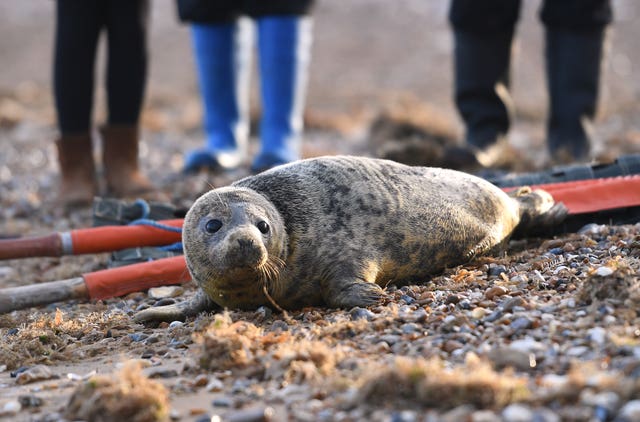
Seal Sir David is likely to be in the RSPCA’s care for at least five months and will require a minimum of four 25kg bags of salts a day as part of his rehabilitation, costing £13 each.
To donate towards the cost of this seal and others at the centre, see www.justgiving.com/campaign/eastwinchseals
